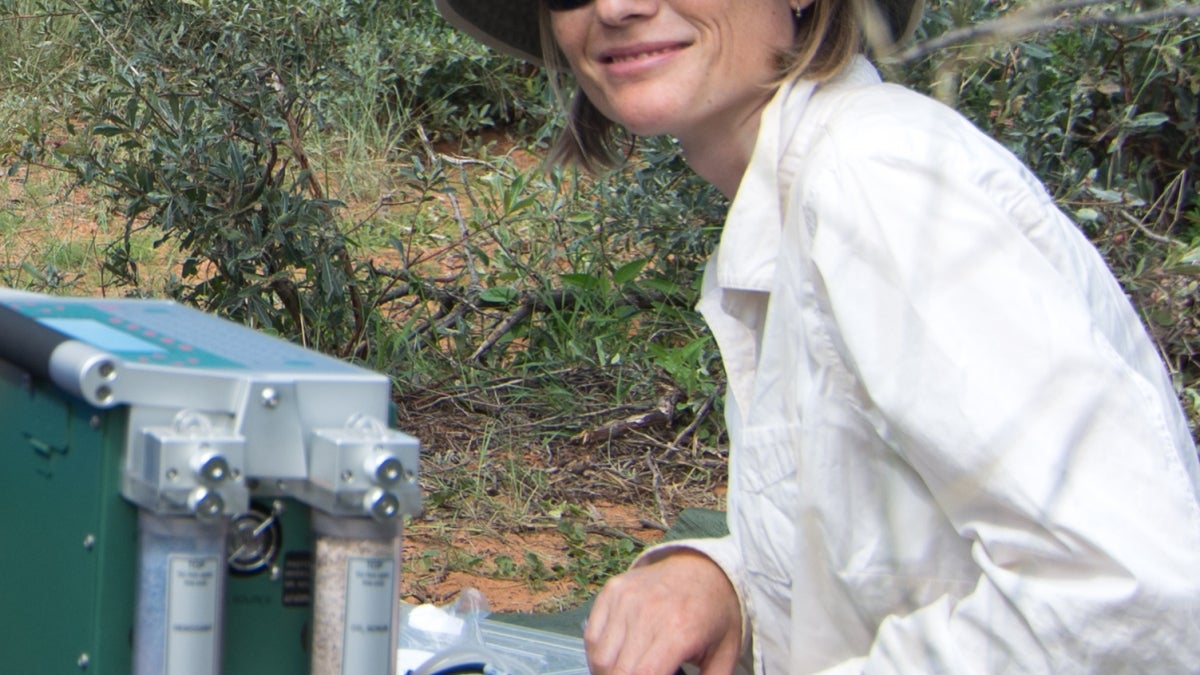Deserts, future climate change featured in ASU lecture series

Heather Throop, associate professor in the School of Earth and Space Exploration and the School of Life Sciences.
The School of Earth and Space Exploration continues its fall semester New Discoveries Lecture Series with "Dry, drier, driest: How will deserts respond to changing climate?" a talk by Heather Throop, associate professor in the School of Earth and Space Exploration and the School of Life Sciences.
Desert and semi-desert environments cover nearly half of the world's land surface. Organisms living in these harsh environments must battle to survive extreme conditions. Are desert organisms likely to thrive under future climate change? Or, are they already pushed to extremes and particularly vulnerable to climate change? What role might deserts play in affecting climate change?
Join Heather Throop, who specializes in climate change and arid environments, to explore what we know — and are still discovering — about Earth’s driest places, including deserts in Australia and southern Africa, and our own Sonoran Desert.
The lecture begins at 7:30 p.m. on Thursday, Sept. 29 in the ISTB4 building on the Tempe campus. The event is free, however an RSVP is requested.
Throop's research is primarily based in drylands (arid and semi-arid ecosystems), which are home to a large and rapidly increasing portion of the world's human population. These systems are particularly critical in many developing nations where human livelihoods are often tightly linked to sustainable use of drylands. Prior to joining ASU, Throop was on the faculty at New Mexico State University and was a 2015 Fulbright Research/Teaching Scholar at the Namibia University of Science & Technology.
The New Discoveries Lecture Series brings exciting scientific work to the general public in a series of informative evening lectures, free and open to the public, each given by a member of the School of Earth and Space Exploration faculty once a month throughout the academic year.
Additional lectures in this Fall series will be presented Oct. 20 by Kip Hodges, founding director of the School of Earth and Space Exploration, and on Nov. 17 by Steven Semken, professor of geoscience education and geological sciences.
Lectures begin at 7:30 p.m. at the Marston Exploration Theater, located on the first floor of ASU's Interdisciplinary Science and Technology Building 4 (ISTB4) (map) on the Tempe Campus, RSVP to reserve a seat. Parking is available at the Rural Road parking structure just east of ISTB 4.
More Science and technology

ASU postdoctoral researcher leads initiative to support graduate student mental health
Olivia Davis had firsthand experience with anxiety and OCD before she entered grad school. Then, during the pandemic and as a…

ASU graduate student researching interplay between family dynamics, ADHD
The symptoms of attention deficit hyperactivity disorder (ADHD) — which include daydreaming, making careless mistakes or taking…

Will this antibiotic work? ASU scientists develop rapid bacterial tests
Bacteria multiply at an astonishing rate, sometimes doubling in number in under four minutes. Imagine a doctor faced with a…